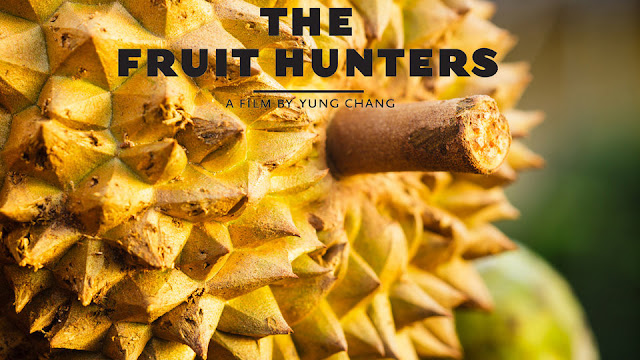Fruits, usually juicy and sweet, painted with vibrant and bold colors, emitting fragrance to attract animal to take a bite of them. They are geared with all sorts of helps to make sure animal would volunteer to propagate for them.
I’d say most of people love eating fruits. Like everything else in these days, we take them for granted, but the worst part is just like any other produces sold in the supermarkets, we are ignorant and narrowed into very small amount of varieties that the nature has to offer.
Before watching this documentary, I was like everyone else. Even I did have access to other than regular banana, but I never knew those regular or common yellow banana are all from the Cavendish banana subgroup, a variety ordinating from Vietnam and China.
Uniform, consistence, stability, and convenience. They are all the characteristics that you can find on supermarkets’ shelves. Despite food waste issue, those are creating a more important issue that normal people may not even think about before.
The Fruit Hunters doesn’t like other documentary films, it doesn’t give you a shock education, it doesn’t verbosely tell you what issue and the consequence we will have if we keep going on like this. What it gives you are the passion of people who loves fruits, who enjoys fruits, who knows about fruits.
Diversity, it’s known for good things in many aspects. Diet, genetic, even your hobby. But the reality is we are not actually having the same degree of diversity as before. People don’t know about food, don’t want to try things they haven’t eaten before, don’t want to eat anything they haven’t seen before. We judge things by their looks, we are trained so by the marketing strategy.
The film slightly hints and depicts the situations, but it leaves realizations to viewers. Next time when you hold a fruit, you think about it. How it gets into your fruit basket, how it was grown, and how it would be.
Whoever thinks customers need to look at good-looking products haven’t realized that they are erasing good things, slowing making an option-less future, and possibly no way to deal situations. They have markets to educate people, but they chose the easy way to make money.
I think the first film Bill Pullman stared that I watched in was Independence Day, too bad 1600 Penn got canceled. Not only I didn’t know he has passion for fruits, but also the fruit trees he planted in slopes in his backyard or back of his house. He revealed that he had lost his smell, it’s kind of sad to hear that. It’s not just fruit but also foods, smell is quite significant part of pleasure and it just can’t be replaced with taste.
What’s exotic fruits, it’s just a label for imported fruits. To locals, exotic fruits are what they might devour every day. Sadly, even local markets might slowly be assimilated by corporation, the generation after might not recognize what thy have just miles away.
You’d think in modern days, you can easily have access to those wickedly looking fruits, but no. Because they don’t think you want those fruits, they don’t want to transport fruits ain’t easy to transport, and most of all, you ain’t aware of those fruits.
Do I really blame supermarkets by the sound of words in this blog? Not really, a big part of responsibility comes from us—the consumers. I might not think same when decades ago when information wasn’t as freely or easily to obtain. But today, with Internet, we can blame ourselves for causing things to this stage.
This film was made in 2012, produced by EyeSteelFilm, directed by Yung Change, inspired by the same title book by Adam Gollner. By the way, if you like this type of documentary film, see More than Honey (2012), a Swiss film, it’s devastating to say the least in my opinion.
We take easy way out and sack other options, but one day, there might not be anything left.
This film taught me that the Cavendish banana does have seeds, a question I always had when I was eating one.

0 comments:
Post a Comment
Note: Only a member of this blog may post a comment.